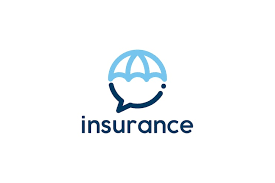Introduction
Business Interruption Insurance is a critical form of commercial coverage that compensates businesses for income lost during periods when normal operations are disrupted due to an insured peril. Unlike property insurance—which covers physical damages—business interruption insurance covers the financial impact of halted operations, helping businesses stay afloat during periods of unexpected shutdown.
What Is Business Interruption Insurance?
Business Interruption Insurance (also known as Business Income Insurance) reimburses a business for lost income and additional operating expenses incurred during a temporary shutdown due to a covered event, such as:
- Fire or explosion
- Natural disasters (e.g., storms, earthquakes—if covered)
- Equipment breakdown
- Vandalism or theft
- Government-mandated closures (in some cases)
It is usually part of a broader Commercial Property Insurance policy or a Business Owner’s Policy (BOP).
What Does It Cover?
Key components typically covered include:
- Lost Revenue
Income the business would have earned during the period of interruption, based on historical financial data. - Fixed Operating Expenses
Rent, utilities, insurance premiums, and other regular expenses that continue even during shutdown. - Relocation Costs
Expenses for temporarily moving to and operating from a new location. - Employee Wages
Coverage to continue paying employee salaries and prevent layoffs. - Loan Payments
Assistance in meeting debt obligations during business downtime. - Training Costs
If new equipment is needed post-incident, training employees to use it may be covered. - Civil Authority Coverage
Losses incurred due to a government order that restricts access to the business premises (e.g., during a lockdown or evacuation).
Exclusions
While Business Interruption Insurance is comprehensive, it does not cover:
- Undocumented income or losses
- Utility interruptions (unless added by endorsement)
- Voluntary shutdowns
- Pandemics or virus outbreaks (unless explicitly included—usually not standard)
- Flood or earthquake (unless covered under a separate policy)
How Is the Coverage Period Determined?
The coverage typically begins after a waiting period (usually 48–72 hours) following the event and continues until the business is reasonably restored to its pre-loss condition. This period is known as the “period of restoration.”
Some policies offer extended business income coverage, which continues to provide compensation for a certain period after the business reopens, to help it regain normal income levels.
Industries That Benefit Most
Business Interruption Insurance is crucial for:
- Retail stores
- Restaurants and hospitality businesses
- Manufacturing units
- Healthcare facilities
- IT and data centers
- Logistics and supply chain companies
Any business that relies heavily on continuous operations or physical premises should strongly consider this coverage.
Real-World Relevance
Consider a restaurant that experiences a kitchen fire, forcing closure for repairs. While property insurance may cover the cost of repairs, Business Interruption Insurance will cover lost revenue, staff wages, rent, and other fixed expenses—helping the business survive until it reopens.
During the COVID-19 pandemic, many businesses realized the importance of this insurance, although most policies excluded virus-related interruptions unless specifically endorsed. This highlighted the need for more tailored and flexible business interruption policies.
Conclusion
Business Interruption Insurance is not just a protective measure—it’s a financial lifeline for businesses facing operational disruptions. It ensures that a temporary shutdown doesn’t lead to permanent closure by covering critical income and operating costs during downtime.

